
To translate a block of text or web page, click Bing Translate or Google Translate
 Wikipedia Sitemap |
|
|  Useful Links 1 Useful Links 2 |
Diary of Carl Kaas:
Holland on May 10, 1940
Diary written by Carl Kaas originally in Dutch, edited by I Lee
for English structure, grammar or spelling only as needed.
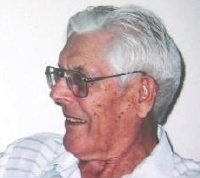
Diary Entry Date: May 10, 1940
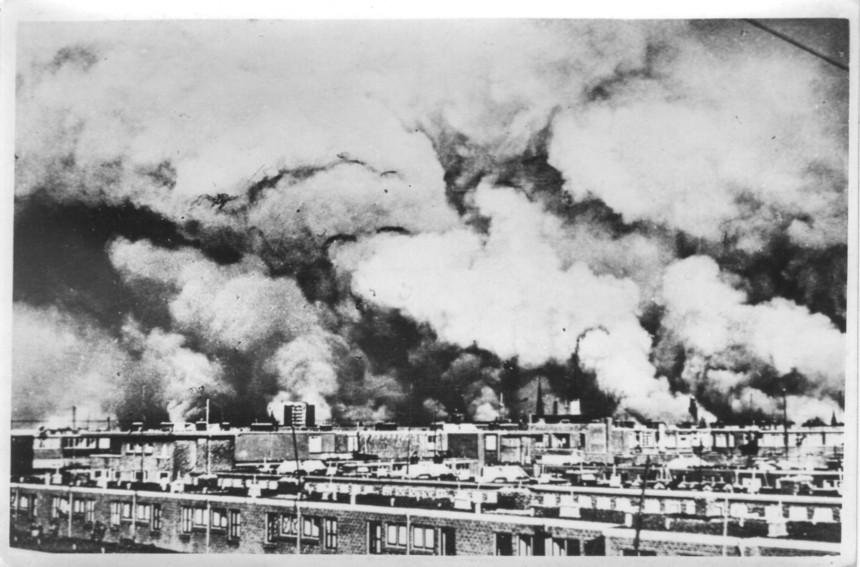
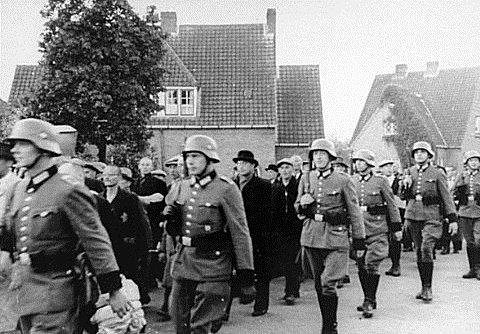
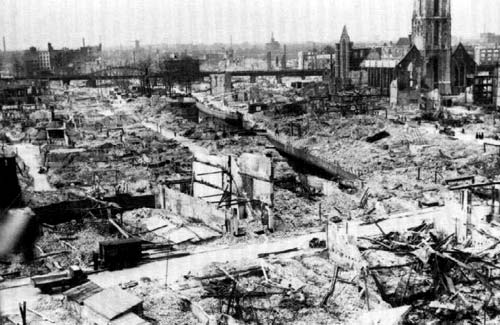
For several years, ever since Hitler became the Head of State in Germany, rumors got around about war, would it come or not. When Hitler ordered his army to walk into Sudetenland, England was very disturbed. So Neville Chamberlain, the British Prime Minister, flew to Germany to have a good talk with Adolf Hitler. It was very successful. Hitler told him, "It was all a mistake", and felt very sorry. "It will not happen again," said Hitler. "We want peace as much as you do, so I will sign the document to prove it."
Chamberlain was as happy as anyone possibly could be. When he stepped off the airplane, he waved the signed document and beamed with great pride and said, "There will be peace in our life time." He became the biggest fool in history.
A very short time later, the German army marched into Denmark and continued on to Norway. Holland stayed neutral. When a Dutchman called Hitler a murderer, Holland went so far as to have this man jailed for insulting a Head of State of a friendly nation. My steadfast opinion even then, when I was only 18 years old, was that Hitler would take the Netherlands for three reasons: 1) He thought he was smarter than the Kaiser who lost the First World War; 2) His fight would be with England, so he wanted an unobstructed view of the North Sea to face England; 3) Holland was a nice breadbasket for Hitler to just walk in and take over.
On the morning of Friday, May 10, 1940, at 4:00 a.m., I was awaken by all the racket going on outside: airplanes of all descriptions filled the sky, the Dutch army with horse wagons, canon trucks, and all kinds of equipment on the go. I rushed to the radio and there it was! Holland declared war on Germany for illegally sending troops across the border. It went on to say, "Our troops are defending our territory with all the courageous effort possible."
Our government knew that Hitler would invade Holland. It had plans already drawn up to evacuate the people and animals in our region because we were living right next to the most important defence line. So this Friday morning, all able body cattle farmers went to work herding cattle to Wijk by Duurstede on the big river to be loaded, then transported to North Holland.
All cattle farmers opened their gates and drove their cattle out onto the road. Soon hundreds and hundreds of cows, calves and heifers clogged the roads. It was a very slow journey. Hollering or screaming meant nothing to these animals as most of them were like family pets. They did not want to go. Although the distance was only about 30 km, it took us three times longer than normal to travel the distance. We moved throughout the day and night, practically non-stop, for 24 hours a day. During the day, airplanes flew over us so slow and so low that we could have easily blasted them away, but we had no guns and no army. We wondered if the war was over already. But on the 30th day, our hope got a big boost. They were still fighting because two Fokker twin tail Dutch-made bomber fighter planes streaked over our heads.
Day 4 of the cattle drive ended at the harbor. With our job finished, we went looking around. We found several barges filled not with cattle but with German soldiers, already prisoners of war. Some of the guys wore Dutch army uniforms. Oh my, who were they? Traitors or Germans who donned the uniforms of their enemy?
We had lots of questions, but no answers. Our boys were busy doing something but what? Soon they started to disappear, and by noon all the Dutch soldiers were gone.
We were waiting for orders from the government as to what we should do next. We decided we would go by train to North Holland to join our families. We made our way to the city square. There we saw a scene which made our hair stand up on our necks. Three German motorcycles with sidecars squealed around the corner, stopped, and the nine fellows jumped out with rifles ready, ran up to the city hall and disappeared inside. Now we knew that they did cross the river. Is this the end? Then word got around, the war was over for us. We could go home now, back to Hamersveld.
Later on, we learned that Hitler threw his mighty army against little Holland and would occupy it in two days. However, the Dutch resistance was so fierce that he got only halfway. Our defence line at the Gelderse Valley stopped the German soldiers. So they had to go around to higher grounds which was the Grebbeberg (Grebbe Mountain). The Dutch army was ready for them at that spot. The battle must have been very fierce. When we visited it right afterwards, the devastation was awesome. Not one single tree was still intact, not one leaf left on the mighty Oak and Beech trees. The tree trunks were all ripped apart by grenades and gun fire.
Mass graves had already been dug and covered. One pit was still open with one or two corpses of soldiers covered at one end. How many of them were wounded? How many lost their lives? On our trip through the land, we saw several hastily dug graves in fields along the roads. Were they killed by airplanes? No one knew the answer.
Many cities were declared "Open cities" which meant "No defence." According to the rules of war, it meant "Do not harm" these open cities. But when Hitler could not take the country in two days, he sent his bombers to set Rotterdam, an open city, on fire.
No one knew just how many people got killed, but when we saw the devastation, we knew there must have been very many. Numbers became insignificant. When you witness street after street, as far as one could see, smashed and burned with not a living soul around, one got a strange feeling and began to question oneself: Who am I? Do I belong to the same human race? Who could build a city then destroy it with all the living breathing human beings in it? What was their crime? Young and old, their lives were cut short because of one person who loved to bask in glory and be called a hero.
Depressed, we left for home and tred to live with what we had seen and hoped that this would be the end of human suffering, at such a scale.
Related resources:
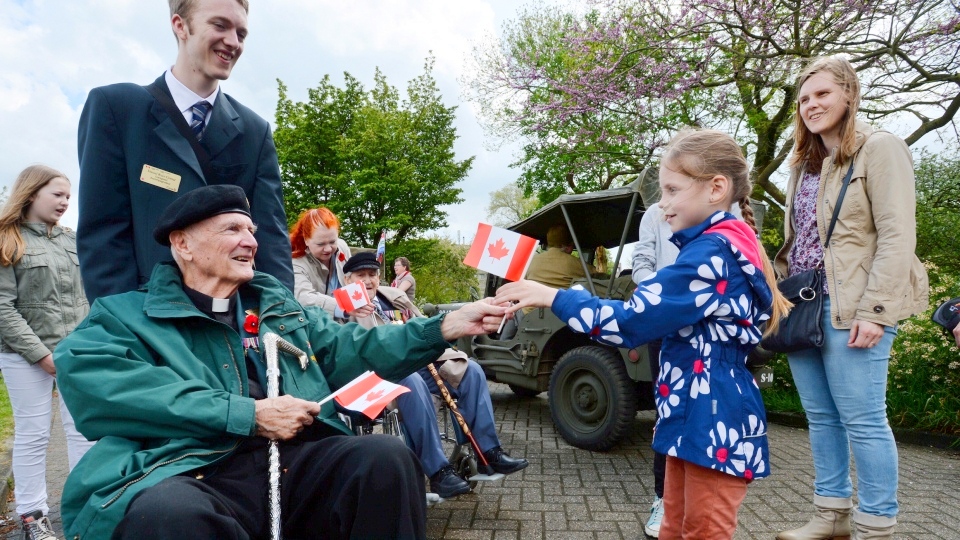
Ceremonies mark 70 years since guns quiet ...
Liberation Day, Netherlands, 10 May 2015
● The Liberation of the Netherlands from Veteran Affairs Canada.
● Harper speaks of sacrifice at 70th anniversary ceremony marking Dutch liberation. By Erica Bajer, Postmedia Network, Welland Tribune, Monday, May 4, 2015.
● HOLLAND LIBERATION 70th ANNIVERSARY 2015. On May 5, 2015, Holland will celebrate 70 years of Liberation. The Dutch people wish to celebrate and commemorate these events with their liberators, their families and all the Canadian friends.
● Harper joins veterans, Dutch, to honour 70th anniversary of liberation. CTV News Videos. May 2015 in the Netherlands.
Including: CTV News: Canadian vets in the Netherlands
CTV News Channel: Harper speaks in Netherlands
CTV News Channel: 'Never diminishing' relationship
CTV National News: A friend for life
Canada AM: Stephen Harper speaks in Holten
CTV News Channel: Importance of remembering
CTV Atlantic: Dutch immigrant in N.S. reflects
Canada AM: A special bond: Anne Gerard Van Leeuwen, Consul General of the Kingdom of the Netherlands, discusses the special bond between Canada and The Netherlands.
Canada AM: A Face For Every Name: Mike Muntain collectc photos and life stories of the 1,355 Canadian soldiers buried in Holten, for the 'A Face For Every Name' project.
● Canada AM: Canada played a major role - Military historian Tim Cook and Dutch-Canadian Martin Van Denzen discuss Canada's importance in the liberation of The Netherlands. Book review: Tim Cook offers insight into Canada's role in Second World War by Peter Robb, Ottawa Citizen, October 16, 2015.
● Gallery: Government of Canada honours Netherlands liberators. May 3, 2015. The Government of Canada hosted a Ceremony of Remembrance at the Groesbeek Canadian War Cemetery attended by more than 60 Canadian Veterans of the Liberation of the Netherlands, Canadian dignitaries, Dutch Government officials and Canadian and Dutch youth.
● Holland or The Netherlands? : a confusing issue explained. "Holland and the Netherlands are not two names for the same country, but rather that Holland is the former name for part of it."
● Herald-Journal - May 11, 1940. Newspaper article from the Spartanburg Herald: "Holland Blasts 100 Nazi Warplanes - Allies to Attack on 200-Mile Front".
● Porcelain Unicorn: A Powerful Short Film in Six Lines and Three Minutes. Depicts story in Germany, 1943. YouTube video, 2:59 min. Summer 2010. Grand Prize Winner of the Phillips Tell It Your Way Competition, directed by Keegan Wilcox.
German Boy - Trevor Teichmann
Jewish Girl - Fiona Perry
Older Man - Bruce Schroffel
Older Woman - Rita Zohar
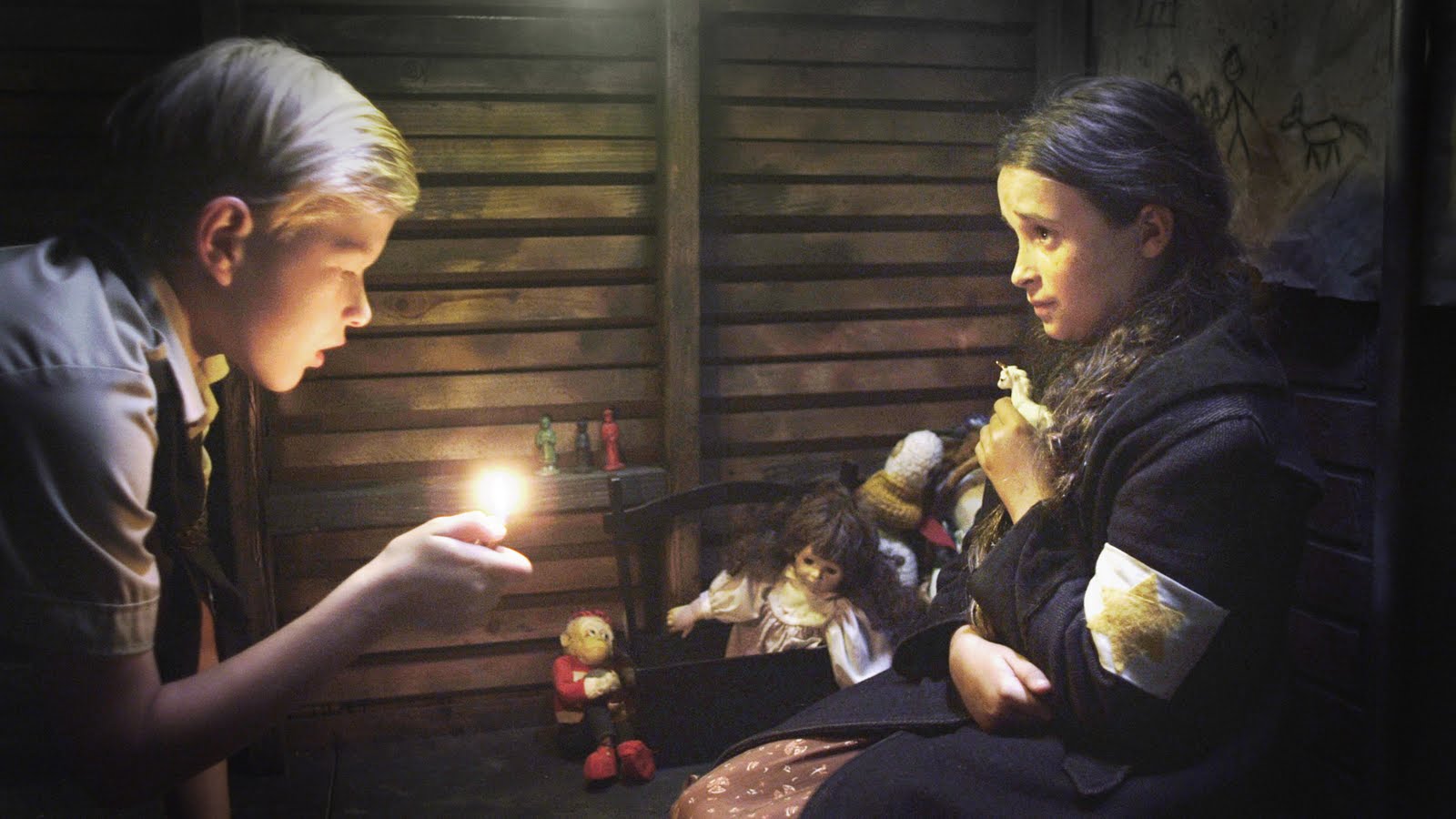
Scene from Porcelain Unicorn
Photo source: Blogspot
See also: Porcelain Unicorn. Summary of story: "A flash back of German boys checking out a house looking for any Jews. One boy finds a Jewish girl hiding with her favorite toys. She gives the German boy a porcelain unicorn but it is soon broken by older Germans (Nazi soldiers). Many years later, the man visits the same house to return the unicorn to the little girl he once met."
Philips's "Tell It Your Way" Contest Closes: the Porcelain Unicorn Took it All. "This summer (2010), Philips and the renowned director/producer Ridley Scott launched a global filmmaker competition dubbed "Tell It Your Way"... The entrants were given a freedom of expression and could take up any theme they wanted, still there were two strict rules - there had to be the exact six-line dialogue as it was in the Parallel Lines films, plus the entries could last no longer than three minutes ...
Only the following lines of dialogue were used to tell the short story on film:
1. Was ist das? (What's that?)
2. Ein Einhorn. (A Unicorn.)
3. Habe noch nie eins so nah gesehen. (Never seen one up close before.)
4. Wunderschön. (Beautiful.)
5. Schwind ab! Schwind ab! (Get away, get away. Vanish off!)
6. Es tut mir leid. (I'm sorry.)
The touching short film "Porcelain Unicorn" by American director Keegan Wilcox scooped the grand prize ... entries were selected from six hundred submitted works - in the first round, they were shortlisted to ten by a panel of judges ... then the semi-finalists were put to public voting by YouTube visitors ... and eventually the top five were shown to Sir Ridley Scott to choose the overall winner on September 21, 2010."
● Führer from Wikipedia, the free encyclopedia.
● How Hitler Became a Dictator by Jacob G. Hornberger, from Freedom Daily.
● The German Invasion of Holland from History Learning Site.co.uk.
● Video about the invasion of Holland. YouTube video, 6:01 min. Published on Nov 1, 2006 by Arkel250. Invasion of Holland in 1940.
● The Battle of the Netherlands 1940. YouTube video, 30:50 min. Published on Feb 28, 2012 by Dutch Docu Channel. "The Battle of the Netherlands 1940 (Dutch: Slag om Nederland) was part of Case Yellow (German: Fall Gelb), the German invasion of the Low Countries (Belgium, Luxembourg, and the Netherlands) and France during World War II. The battle lasted from 10 May 1940 until the main Dutch forces surrendered on the 14th. Dutch troops in the province of Zealand continued to resist the Wehrmacht until 17 May when Germany completed its occupation of the whole nation. (Dutch: 10 mei Comite 4 en 5 mei dodenherdenking = English: May 10 Committee 4 and 5 May Remembrance Day).
The Battle of the Netherlands saw one of the first major uses of paratroopers to occupy crucial targets prior to ground troops reaching the area. The German Luftwaffe utilised paratroopers in the capture of several major airfields in the Netherlands in and around key cities such as Rotterdam and The Hague in order to quickly overrun the nation and immobilise Dutch forces.
The battle ended soon after the devastating bombing of Rotterdam by the German Luftwaffe and the subsequent threat by the Germans to bomb other large Dutch cities if Dutch forces refused to surrender. The Dutch General Staff knew it could not stop the bombers and surrendered in order to prevent other cities from suffering the same fate. The Netherlands remained under German occupation until 1945, when the last Dutch territory was liberated."
● Years of war 1940-1945 as I experienced them at Wencop from Voorthuizen Liberation 1945. "At the outbreak of the war on May 10, 1940, I was only 11 years old and as we lived in Barneveld, we were supposed to evacuate to Nunspeet. But on the morning of May 10, uncle Jan van de Bor came over very early and he offered us a stay at their farm on the Wencopperweg ..." Include photos.
● Dutch Soldiers in May 1940. YouTube video, 3:28 min.
● Memoirs from Amsterdam 1940-45 by Antje Pescha. "Of the 100,000 Jews that were deported 80,000 came from Amsterdam. Jews houses were plundered and the families sent to 'Westerbork' concentration camp."
● History of the Netherlands (1939-1945) and Liberation Day, Netherlands from Wikipedia.
● Liberation of the Netherlands from Canadian Encyclopedia. In the final months of the Second World War, 1945, Canadian forces were given the important and deadly task of liberating the Netherlands from Nazi occupation.
● World War II: The Netherlands - Occupation by Rudi Stueck. "The Dutch for racial reasons were not one of the occupied countries targeted by the NAZIs for destruction . . . The NAZIs occupied the Netherlands for 4 years. There was no freedom of the press and people were not allowed to gather with more than 10 persons . . . The German occupation authorities realized that too many people were listening to clandestine broadcasts and the war news was increasingly turning against the NAZIs. Thus the occupation authorities in 1943 ordered every household had to hand over their radio(s)."
● Survival and Resistance: The Netherlands Under Nazi Occupation by Linda M. Woolf, Ph.D. "The Netherlands had maintained during World War I, a policy of neutrality . . . With the advent of World War II, the Netherlands sought to again remain neutral - a hope bolstered by a promise of nonaggression made by Hitler. However . . . this assurance proved worthless. On May 10, 1940, the German army began its invasion of the Netherlands. Despite valiant efforts made on the part of the Dutch military, the Netherlands fell to the Germans after only five days of fighting. After the bombing of Rotterdam, the Dutch capitulated."
● THE WILLEMSBRUG. ROTTERDAM. MAY 10TH 1940. A WW2 scenario by Mal. Wright, for Blitzkrieg Commander.